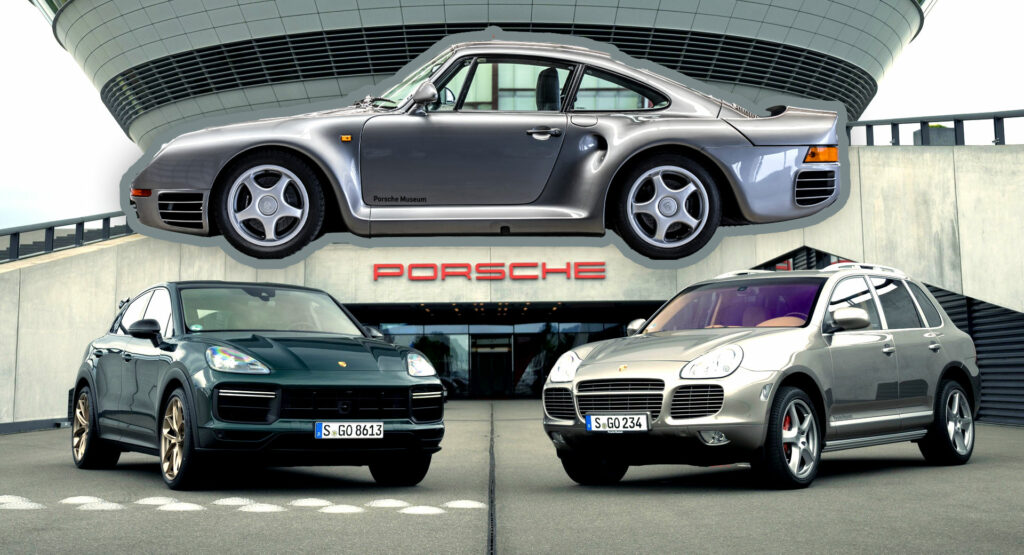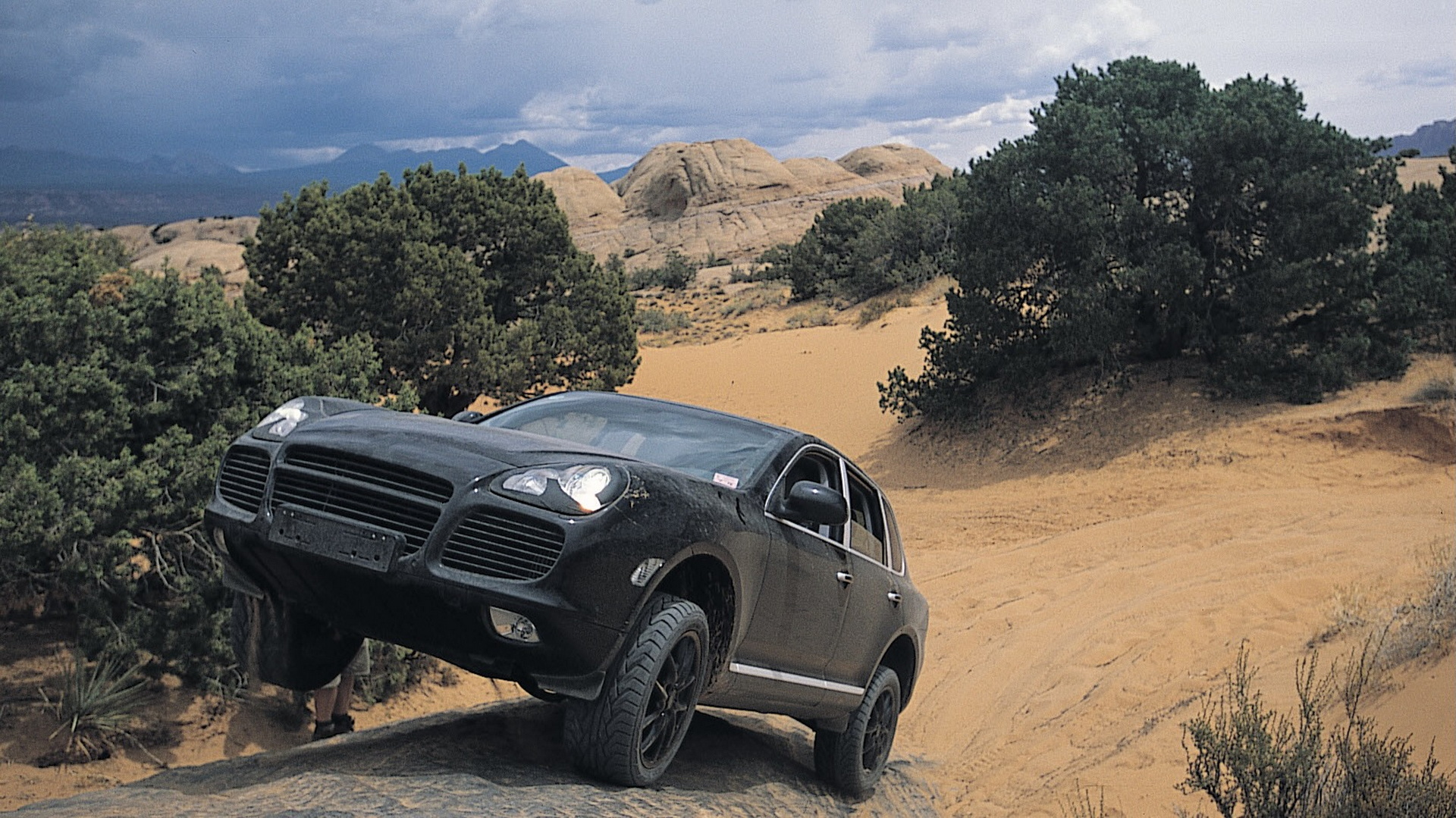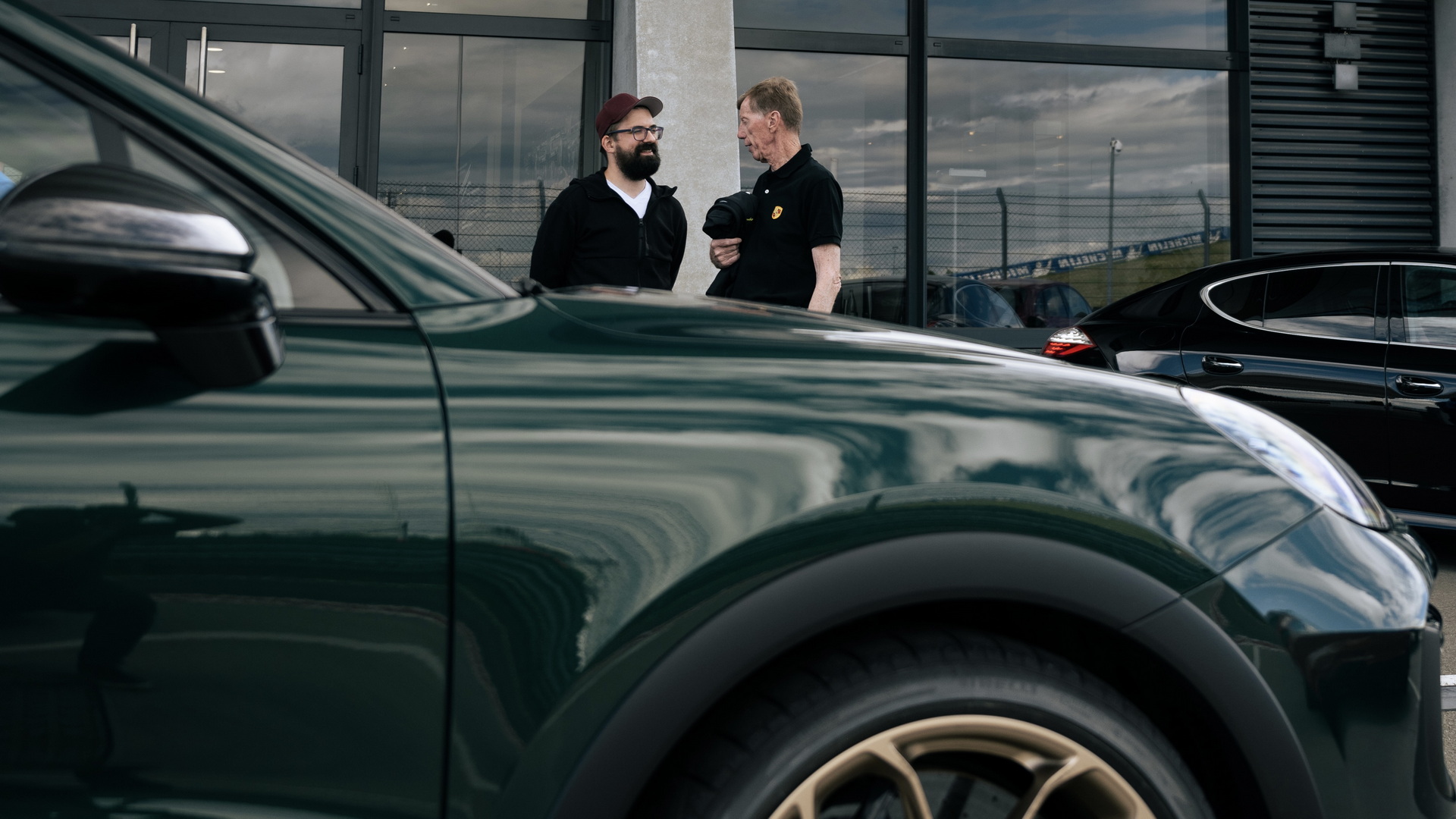The automotive internet sometimes confronts us with an unanswerable question that seems to be designed to create controversy rather than consensus. Rarely, though, is it an automaker posing that question.
Last week, Porsche posted a press release celebrating the 20th anniversary of the Cayenne and posed a pretty interesting question in it. Is the Cayenne the spiritual successor to the 959? At first blush, it might seem like a blatant attempt at revisionist history, designed to distract from the base, financial incentives that inspired the Cayenne. But that doesn’t mean there isn’t a strong argument to be made.
When Porsche was making the 959, the remit was to create a car as capable of tackling the Dakar Rally as well as the Nurburgring. That led the automaker to give it a height-adjustable chassis and an extra low-range first gear for off-road work.
Read Also: The 2022 Porsche Cayenne Turbo GT Is Certainly Quick, But Is It Fun?
The Cayenne, too, had to straddle two worlds. As an SUV that was introduced in 2002, it was still expected to be able to handle off-road driving conditions. As a Porsche, though, it also had to be handy on a racetrack.
“It was clear that such a vehicle would have to bear critiques from all sides,” as Porsche puts it. “The demands on the development team were high.”
Indeed, the team working on the Cayenne – codename: Project Colorado – developed two brand new V8 engines from scratch. The more powerful of the two, a twin-turbo unit, made 444 hp (331 kW/450 PS), the exact same amount as the Porsche 959.
Like the supercar, the SUV also got variable ground clearance thanks to the Porsche Active Suspension System, to ensure that it could go off-road. To guarantee that it would have Porsche-like qualities everywhere, the automaker turned to one of its most adaptable test drivers, Walter Röhrl.
“I thought they weren’t serious. I was sure it couldn’t manage these gigantic obstacles,” said Röhrl of his first time seeing the Cayenne test on the off-road track in Spain. “But it did. That really impressed me.”
Now, 20 years later, the Cayenne is even better than it has ever been, according to Röhrl.
“This is perhaps one of the sharpest cars they’ve ever built,” he said. “At first, you think: that’s a truck. But it drives… it’s just incredible. The precision, the power, the balance. Maybe when you’re braking, then the sense of the weight comes through, but I’m also doing over 250 km/h [155 mph] here at the end of the straight – most cars can’t even manage that.”
If the remit of the 959 was to be as impressive on the road as it off it, it’s hard to argue that the Cayenne hasn’t been given the same task. Although there’s a different, admittedly less attractive body on it, even Röhrl thinks that the link is more than just tenuous.
“A Porsche Cayenne is an all-rounder,” he said, “and yes, you can perhaps really compare it with the 959.”
What do you think? Can the Porsche Cayenne truly be considered in the same breath as the legendary 959?



















